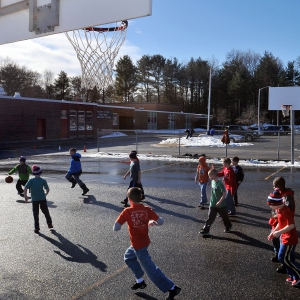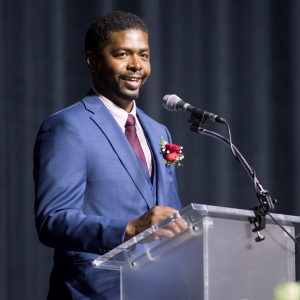Columnist Joanna Buoniconti: The art of trusting strangers
| Published: 04-03-2023 3:20 PM |
Five mornings of the week, I am awakened by the sound of soft footsteps echoing around my bed. They serve as the preamble for moments later when my nurse-of-the-day peels off my sleep mask covering my eyes, allowing the morning sunlight to temporarily blind me. Hushed pleasantries immediately follow, as my nurse repositions me into my respiratory equipment that is meant to jostle any pent-up mucus from the night before out of my lungs.
Three years ago, I would’ve had a fit about having a nurse in my face from the minute that I opened my eyes.
But I’ve since learned to pick my battles. Plus, allowing my nurses to do my morning medical care allows me to get a few extra minutes of precious beauty sleep.
Since I was two years old, I have been cared for by nurses at least five days a week, so that my parents could go to work and trust that I was in capable hands. During my childhood, at times, I spent more time with these nurses than with my actual parents. And, at times, these nurses assumed a parental role over me, much to my chagrin. But as I’ve gotten older that dynamic has drastically shifted. Instead of assuming a parental role over me, my nurses have become my friends.
However, while I have liked and gotten along with most of the nurses I’ve had over the years, it doesn’t mean that it’s an easy feat to allow people into my home every day. In fact, it’s actually quite challenging — especially in the beginning, when I am, literally and metaphorically, putting my life into the hands of strangers. And throughout my 23 years, I have put my life into the hands of more people than I can even count.
Because I can’t walk or physically bear weight on my legs, someone has to physically lift me from one surface to another. And because not all of my nurses have been willing or physically capable of lifting me, I have sometimes had a nurse do my medical care while a personal care attendant (PCA) would be tasked with lifting me from my chair to my toilet, or from my bed to my chair, etc.
Now, for all of my able-bodied readers out there, this entire premise might seem terribly odd because I’m very aware that the majority of you cannot relate to having an assortment of nurses and caregivers in your homes on a daily basis. But my situation is actually not unusual at all for someone who lives with a chronic disability. Most disabled people, who are in similar situations to me, have an array of caregivers who help them with everyday tasks — relating to their care and otherwise — that they cannot physically do themselves.
I equate having multiple caregivers to what I imagine it would be like to run your own business: if the business was in your house and that business was your life. I have to manage their personalities, their schedules and their needs along with the plethora of work on my plate.
Article continues after...
Yesterday's Most Read Articles
 Holyoke man finds bear paw in his yard
Holyoke man finds bear paw in his yard
 Boyfriend accused in slaying of Hampden sheriff’s assistant, former legislator’s top aide
Boyfriend accused in slaying of Hampden sheriff’s assistant, former legislator’s top aide
 Three finalists named for Ryan Road School principal in Northampton
Three finalists named for Ryan Road School principal in Northampton
 Developer pitches new commercial building on Route 9 in Hadley
Developer pitches new commercial building on Route 9 in Hadley
 Two men dump milk, orange juice over themselves at Amherst convenience store
Two men dump milk, orange juice over themselves at Amherst convenience store
 Sadiq to leave Amherst middle school principal role
Sadiq to leave Amherst middle school principal role
Most days, I find myself having to walk a fine line between managing them enough — by giving them enough tasks to stay busy, so that they’re not lounging around texting on their phones all day — but not micro-managing them to the point where I’m driving them crazy. It’s something that, funnily enough, I find I have more difficulty navigating as a young adult than I did as a teenager because I have been scarred from previous caregivers pitching fits when I have asked them to do tasks in the past. So things that I would never think twice about asking my PCAs to do five years ago, I now find hard to ask of them. In addition to being mindful of the fact that my PCAs could attempt to take advantage of my mom or I at any point, by stealing personal items or money from us, which one actually did a few weeks ago.
Any way that you choose to look it, managing caregivers is often a full-time job, in it of itself.
That’s my reality though, and it is for a lot of disabled people. I didn’t know anything else until COVID hit, and I didn’t have any nurses or PCAs for almost two years. To be perfectly honest, while that period of time was challenging in many ways — for my mom and grandma, especially, who had to handle my care pretty much on their own — it was, in many ways, a much-needed respite from having caregivers floating in and out of my home. It allowed my mom, grandma and me to just be for that period of time, which was really lovely while it lasted.
But throughout the past year, I have had to open up my home to both nurses and PCAs once again and force myself to re-learn the nuances that come with those relationships. During my brief stint in mental health counseling last year, I told my therapist that I feel as though I show different people different sides of me, which is certainly true of my caregivers. I almost feel like it’s akin to a survival technique, to morph my personality depending on which caregiver I’m around to make them like me and want to help me more.
Because, the truth is, while I may have no other choice than to put my body into other people’s hands, I don’t trust easily, at all — and often, for good reasons. I put a degree of faith in my caregivers to do their jobs, close my eyes and hold my breath until I’ve safely landed where I need to be.
Joanna Buoniconti is a freelance writer and editor. She is currently pursuing her master’s at Emerson College.]]>

 Bridget Miller: Why walkability is the pathway to a healthy Amherst community
Bridget Miller: Why walkability is the pathway to a healthy Amherst community Guest columnist Mariel E. Addis: Under seige from all sides
Guest columnist Mariel E. Addis: Under seige from all sides Columnist Johanna Neumann: Reaping the rewards of rooftop solar
Columnist Johanna Neumann: Reaping the rewards of rooftop solar Julia Riseman: Join Friends of Northampton Trails
Julia Riseman: Join Friends of Northampton Trails
